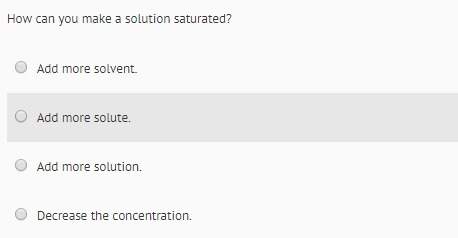
Chemistry, 17.10.2019 23:30 pierrezonra
Consider the reaction, 4 ph3(g) → p4(g) + 6 h2(g). in a given experiment, 0.0048 mol ph3 is consumed in a 2.0 l container per second of reaction. a) what is the rate of decomposition of the ph3? b) what is the rate of production of p4? c) what is the rate of production of h2? d) give three related expressions for the rate of reaction. (assume concentrations of any intermediates are constant and the volume of the reaction vessel does not change.) e) what is the rate of reaction?

Answers: 1


Other questions on the subject: Chemistry

Chemistry, 21.06.2019 17:30, kev71
You are performing an experiment in a lab to attempt a new method of producing pure elements from compounds. the only problem is that you do not know what element will form. by your previous calculations you know that you will have 6.3 moles of product. when it is complete, you weigh it and determine you have 604.4 grams. what element have you produced?
Answers: 1

Chemistry, 22.06.2019 01:30, giraffegurl
If 34.2 grams of lithium react with excess water, how many liters of hydrogen gas can be produced at 299 kelvin and 1.21 atmospheres? 2 li (s) + 2 h2o (l) yields 2 lioh (aq) + h2 (g)
Answers: 3

Chemistry, 22.06.2019 07:20, camillexv2668
2pos suppose an object in free fall is dropped from a building. its starting velocity is 0 m/s. ignoring the effects of air resistance, what is the speed (in m/s) of the object after falling 3 seconds? give your answer as a positive decimal without units. answer here
Answers: 1

Chemistry, 22.06.2019 08:40, alexisbcatlett14
Which statement can best be concluded from the ideal gas law?
Answers: 2
You know the right answer?
Consider the reaction, 4 ph3(g) → p4(g) + 6 h2(g). in a given experiment, 0.0048 mol ph3 is consumed...
Questions in other subjects:



Mathematics, 14.02.2020 03:27







English, 14.02.2020 03:27




